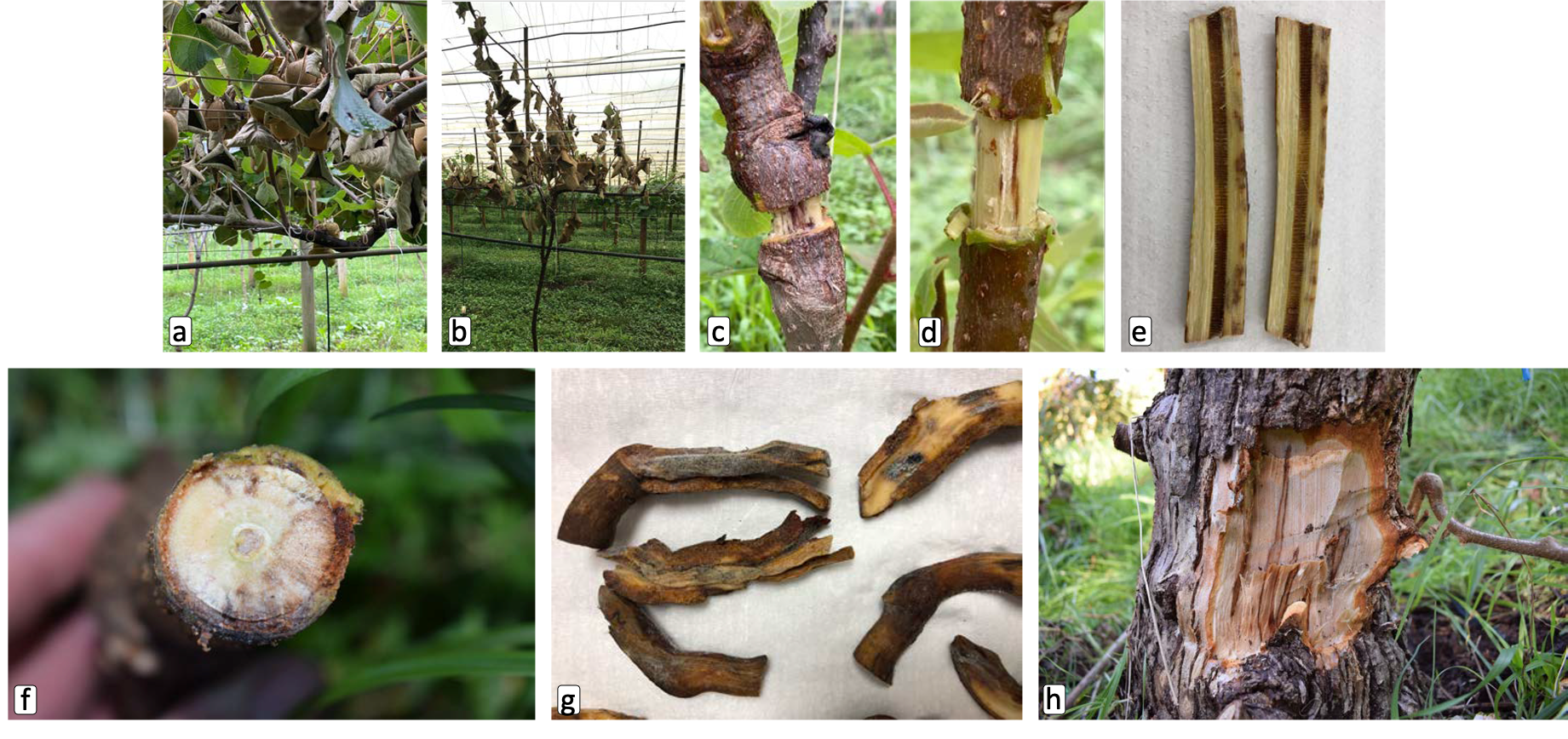What to look for and collecting samples
Disease infection and spread
Ceratocystis species are fungal pathogens that affect mostly woody plant species.
Infection occurs through natural openings (buds, cracks in bark, root knots etc.) or external wounds on the stems or roots, induced through cultivation practices (e.g. grafting and pruning wounds), insects or weather-related conditions. The fungus invades the plant and blocks the water transport system resulting in wilting symptoms.
The spores of the fungus can be distributed via insects (e.g. picnic beetles or flies) by attaching to the insects which then transmit these spores from diseased to healthy plants. Some insect vectors bore into the diseased tissue of plants and the contaminated frass (borings) can be distributed via wind and rain.
Spread also occurs through the movement of infected plant material and soil. The thick fungal spore form can survive for long periods of time in the soil and infect new plants planted in the same soil.
Symptoms
Symptoms of infected plants include leaf discolouration (yellowing) and wilting (a) which can eventually lead to plant death (b).
Internal infections in the cane/trunk are visible as dark brown streaks or mottled spots in the wood(c,d,e,f,h) or roots (g).

Collecting samples for diagnosis
When wilting symptoms appear, inspect both rootstock, especially at the soil level, and recently wilted canes. Cutaway bark and look for streaking of wood (c,d,e,h).
Cut infected cane tissue at the margins of healthy and dying tissue or shave off thick pieces of discoloured wood with symptoms. Wrap samples from individual plants separately in newspaper and place them in separate plastic bags. Document variety number on bags. If roots are infected, first wash off soil and dry samples before wrapping in newspaper.
Take clear photos of symptoms (use images here as examples).
If any symptoms are seen at the root collar, take soil samples. Mix up the soil (top 10cm) from around the base of the plant. Place ONE CUP of this soil in a plastic bag and seal firmly.
Send samples by COURIER to:
Dr Lieschen De Vos, (c/o Prof Irene Barnes/Prof Mike Wingfield)
Forestry and Agricultural Biotechnology Institute (FABI)
University of Pretoria
Lunnon Street Entrance
Hatfield
Pretoria
0083
Tel: 012 420 3938
Email: This email address is being protected from spambots. You need JavaScript enabled to view it. with courier tracking number, details and extent of the problem, photos, farm/collector details and contact numbers.
For more information on the FABI Diagnostic Clinic, please click here.
Text prepared by: Irene Barnes, Mike Wingfield
Photos by: Malcolm Deacon, Jolanda Roux and Irene Barnes

